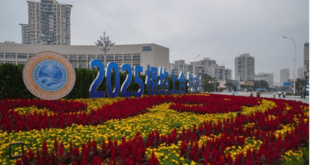Eng. Saleem Al Batayneh
There’s an old saying by the French writer André Paul Gide: “God help me with taxes! As for the other calamities, I will take care of them.” How fitting these words are in today’s Jordan, where governance has become synonymous with taxation. This recent wave of fiscal policies feels like a relentless hook strike, a blow delivered just as we thought the game was nearing an end.
Allow me, if you will, to write with anger. What rational citizen can comprehend the decisions made by Jordan’s outgoing government, in a final flurry of reckless policy shifts? With hours left in their tenure, they delivered shockwaves through the country—swift, unforeseen moves that defy logic. One can only wonder why Prime Minister Bisher Al-Khasawneh didn’t outright reject them or, at the very least, delay their implementation.
Wherever one looks in Jordan today, crises stare back, unblinking and burning. They’ve simmered for years, with no clear resolution in sight. This government, like those before it, seems bent on perpetuating a system where citizens are bled dry by endless taxes. The people’s pockets are empty, but this administration has shown little empathy, imposing burdens without regard for the consequences.
The audacity of it all is staggering. At a time when Jordanians were preoccupied with parliamentary elections, the government pushed through hikes in taxes on electric cars—up to 40%, with an eventual rise to 55%. They raised levies on tobacco, shisha, and even solar energy projects. All of this despite promises made by former Finance Minister Dr. Mohammad Al-Ississ that no new taxes or hikes would be implemented in 2024. Clearly, those assurances were hollow.
What’s worse, there seems to be no bridge between the government and the people. No voice of reason, no middle ground to ease the tension. The midnight decisions of this administration can only be described as folly. Those making these choices seem to have forgotten that history judges harshly those who act without foresight.
The economic crisis in Jordan today feels all too familiar, reminiscent of the turmoil in 1989. Poverty has taken root, spreading through the homes of Jordanians like wildfire, extinguishing the last embers of hope for a dignified life. People are left battered and confused, their wounds multiplying daily. Which is more painful—the taxes or the lack of opportunity?
Consider this: the average Jordanian now pays between 55-65 piasters in taxes for every liter of gasoline. The tax often exceeds the actual price of the fuel. This, more than anything, illustrates the cruel absurdity of our fiscal policies. Governments seem to have forgotten their role—they now operate like for-profit corporations, squeezing citizens without mercy.
The challenges before us are not insurmountable, but they cannot be addressed by simply acknowledging them. Jordan’s new leadership must shift away from this punitive, tax-heavy approach. The state must find a balance between change and reform if it is to regain the trust of its people. The success of our new president will depend not just on policy shifts, but on his ability to connect with the people, to ease their fears, and offer real solutions.
The era of cosmetic fixes is over. We’ve learned that the same old formulas will always yield the same results. A glance at the nation’s economy, rife with poverty, unemployment, and burdensome taxes, tells us how dangerous the situation has become.
Jordanians are a resilient and hospitable people. They are ready to work, to produce, and to grow. But they have been denied the opportunity to do so. For the sake of Jordan’s future, it’s time for a government that truly serves its people—not just its treasury.
Al Batayneh was a member of the Jordanian Parliament.
 Geostrategic Media Political Commentary, Analysis, Security, Defense
Geostrategic Media Political Commentary, Analysis, Security, Defense





